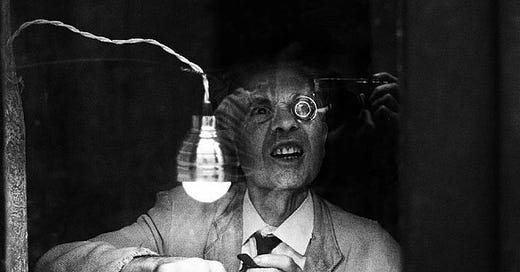Multiverse & the Architecture of Choice
In 1957, a young physicist named Hugh Everett proposed an idea so radical that even his mentor, the legendary John Wheeler, hesitated to support it. Everett suggested that every quantum event doesn’t just resolve into one outcome but splits the universe into all possible outcomes simultaneously.
This became the Many-Worlds Interpretation of quantum mechanics.
It means this: every time you make a choice, whether to text someone, to say yes, to walk into that room or stay silent, you’re not just choosing a path. You’re birthing parallel realities. In one, you said no. In another, you left early. In a third, you never met the person who changed everything.
And yet, you only get to live one thread. One life. One version.
I often wonder what would have happened if I studied law instead of physics and marketing. I love the idea of it. The architecture of arguments, the ritual of language, the power of interpretation. In another timeline, I’m probably in a courtroom, debating constitutional nuance with a fire I never got to explore here. That version of me exists somewhere, even if I never get to meet him.
Now let’s pause. Because this is no longer just physics. It’s philosophy, a theory that describes regret.
Most people live haunted by counterfactuals. What if I’d taken that offer? What if I hadn’t walked away? What if I’d said what I really felt? These echoes of parallel lives are versions of you that exist in imagination, if not in space-time.
Quantum physics, at its core, is the study of uncertainty. At the microscopic level, the world is probabilistic. Electrons smear across possibilities. Particles express a range of potential until you look, until you measure.
Life mirrors this.
You don’t always know what the right choice is. You don’t get certainty. You get a wave function. A cloud of options. And the act of living, of choosing, collapses that wave into one path.
That’s why people freeze. They’re afraid that choosing one thing kills every other possibility. And they’re right. It does. But the wave must collapse. Stalling is not safety but decay.
Science, for all its logic, is full of heartbreak.
It tells you that nothing is fully knowable, not even yourself. It tells you that the world isn’t built on certainty, but on odds. It tells you that entropy wins, eventually. That time moves in one direction. That the most fundamental truths are not concrete, but probabilistic.
But science also whispers something else. That you’re not here by accident. You are the result of a million quantum events that could have gone differently but didn’t. You are the one timeline that survived the collapse. You are a consequence of possibility, sharpened into reality.
The question isn’t what if I had chosen differently?
The real question is now that I have, what will I make of this universe I’m in?
Because in this one, this fragile, fleeting, collapsing timeline, you still get to choose what happens next.



